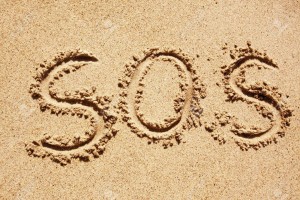[av_textblock size=” font_color=” color=”]
Emergency Care
To help minimise the impact of dental trauma for your child 
Toothache:
If your child develops a toothache book an appointment with us ASAP. If there is any swelling or infection present it needs to be treated quickly to avoid complications.
If your child cannot be seen quickly the steps below may offer some temporary relief:
- Paracetamol taken orally can provide some relief
- DO NOT put aspirin against the tooth as gum can be damaged
- Gently use dental floss to remove any lodged food from between the painful teeth
- If swelling is present a cold pack placed onto the cheek may help minimise the swelling
- Having head raised at bed time may alleviate intensity of pain
- Your doctor or dentist can provide a prescription for antibiotics if infection is present but your child must see the dentist for urgent treatment or the infection will return and severity will increase
Knocked out Tooth:
If a tooth is knocked out TIME IS CRITICAL as the sooner the tooth is placed back into the socket the greater the success of it recovering are.
The following steps should be taken QUICKLY:
- Carefully handle tooth by crown end only (not the root)
- Do NOT scrape or rub the root surface, plus leave any gum fragments
- Do NOT use water to wash the tooth instead if dirt is visible ask injured person to gently suck tooth clean if possible, or rinse in milk or saline. (If water is the only alternative then very briefly rinse)
- IMMEDIATELY replant the tooth in the socket (check tooth facing correct way) This should not be delayed more than 30 minutes
- Have patient bite down on a soft cloth or stabilise the tooth by placing aluminium foil across and around affected tooth and adjacent teeth
- Seek urgent immediate Dental treatment for further stabilisation
If you are unable to replant the tooth immediately then keep moist by:
- Placing in a cup of milk or
- Sealing in some plastic wrap or
- Placing into patients mouth next to cheek (if patient is able to do so)
- DO NOT place tooth on ice
To help prevent against a broken or knocked out tooth always ensure your child if fitted with a custom made mouthguard when playing sport or in training.
Injuries to soft tissue surrounding the mouth:
Any injuries to lips, tongue or cheeks that result in bleeding, apply pressure directly to the injured area with a clean cloth to help control the bleeding.
For larger or deeper lacerations take your child for emergency care to the closest hospital or local doctor.
If the injury is close to the teeth but doesn’t appear to require stitches then seek advice from a dentist or if not available a healthcare professional.
To minimise swelling apply ice or cold compresses to the site of the injury.
Broken Tooth:
If your child breaks or cracks a tooth please contact us immediately for an appointment as it is possible that the nerve of the tooth may be injured.
After rinsing any dirt from the site with warm water, place a cold compress onto your child’s face in the area of the injury to minimise any swelling.
Please bring any broken portion of tooth with you to the appointment
Broken braces or retainers:
If you have a broken wire or braces cover the loose end with wax (or chewing gum) and see your orthodontist/dentist as soon as possible.
If your child’s orthodontic retainer does not fit properly leave out until you have seen their orthodontist/dentist for it be repaired and fitted.
[/av_textblock]

